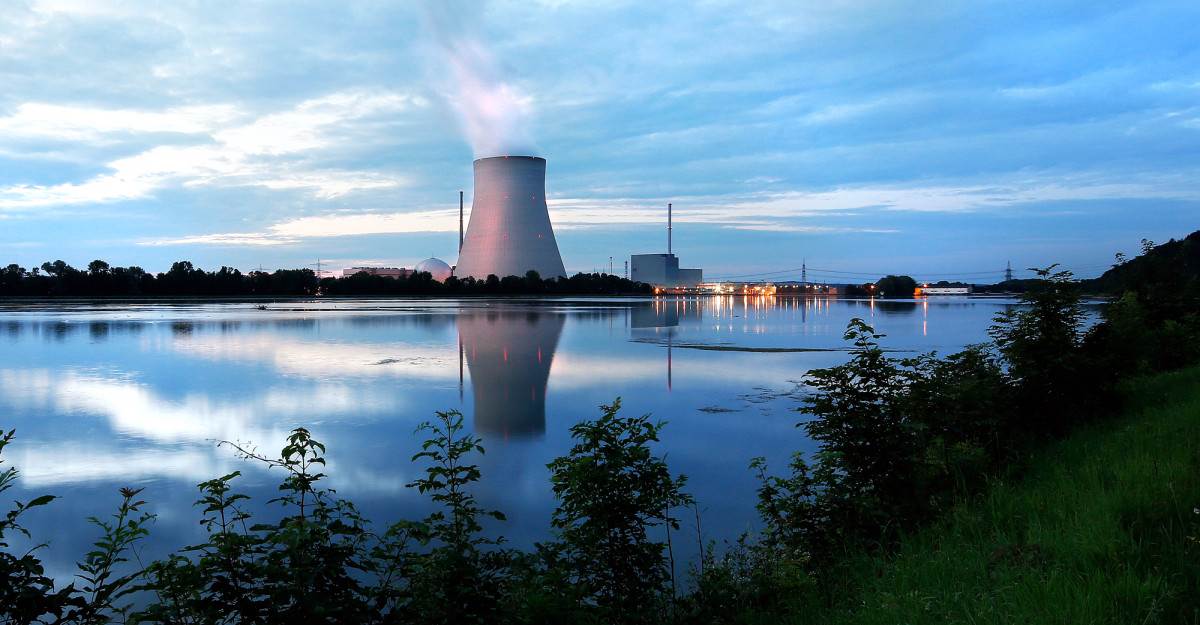Germany to close nuclear reactors despite energy crisis
Germany will shut down three nuclear power plants on Friday, amid Europe's worst energy crises.
-

Germany to close nuclear reactors despite the energy crisis.
Germany will shut down three nuclear power plants on Friday, despite Europe facing one of its worst energy crises in history, in accordance with Angela Merkel's timetable for phasing out atomic energy.
With energy prices already on the rise and tensions between Europe and key gas supplier Russia at an all-time high, the closure of the plants in Brokdorf, Grohnde, and Gundremmingen could exacerbate the situation.
The move will halve Germany's remaining nuclear capacity and reduce energy output by around four gigatons, which is equivalent to the power produced by 1,000 wind turbines.
Protests over the Fukushima nuclear disaster in 2011 prompted former German Chancellor Angela Merkel to set in motion the process of abandoning nuclear power just over a decade ago.
Germany intends to phase out nuclear energy entirely by the end of 2022, when it will close its final three plants in Neckarwestheim, Essenbach, and Emsland.
However, with energy prices soaring across Europe, the timing of the plans' implementation could not be worse.
The Dutch TTF, Europe's reference gas price, reached 187.78 euros per megawatt-hour in December, ten times higher than that at the beginning of the year, and electricity prices are also skyrocketing. Geopolitical tensions with Russia, which supplies one-third of Europe's gas, have fueled the rise.
Western countries accuse Russia of restricting gas deliveries in order to put pressure on Europe in the midst of the Ukraine conflict, despite Russia's announcement it is prepared to raise the required production volume of gas to meet European demand.
Moscow also wants to push through the contentious Nord Stream 2 pipeline, which would transport even more Russian gas to Germany.
Hiking prices
According to Sebastian Herold, a professor of energy policy at Darmstadt University of Applied Sciences, the end of nuclear power in Germany will likely drive up prices even further.
"In the long term, the hope is that an increase in renewable energy will balance things out, but this will not be the case in the short term," he told AFP.
Until Germany can truly ramp up renewables, it will rely on fossil fuels to fill the void left by the nuclear exit. "This will make Germany more dependent on natural gas overall, at least in the short term, and thus also a little more dependent on Russia," Herold said.
The transition may also take longer than Germany would like, as renewables progress has been slowed in recent years by opposition to energy infrastructure projects.
For the first time since 1997, the proportion of energy generated by renewables is expected to fall to 42% in 2021, down from 45.3% in 2020.
Nuclear plant closures will raise prices while also removing a key source of low-carbon energy in a country that is already struggling to meet ambitious climate goals.
The new coalition government, led by Social Democrat Olaf Scholz, has pledged to move Germany's planned coal exit date to 2030 and to have the country generate 80% of its electricity from renewable sources by the same year.

 3 Min Read
3 Min Read










